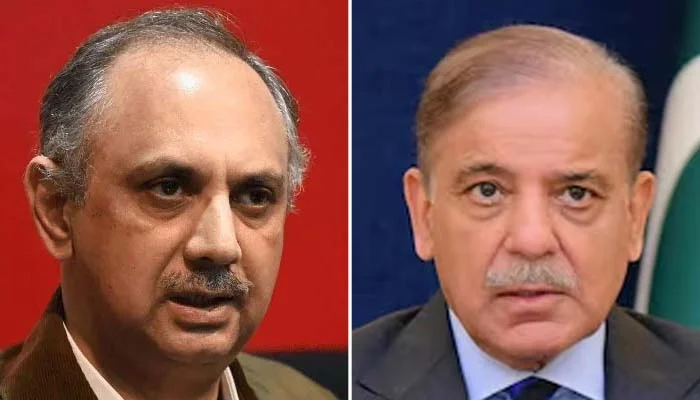PM writes to opposition to confer on new CEC

Following months of stagnation about significant electoral appointments, Prime Minister Shehbaz Sharif on Wednesday reached out to National Assembly Opposition Leader Omar Ayub, proposing discussions on the selection of a new Chief Election Commissioner (CEC).
The premier indicated in a letter that the tenure of the Chief Election Commissioner, along with that of two more members of the Election Commission of Pakistan, concluded on January 26. Nonetheless, all three have persisted in their responsibilities under Article 215 of the Constitution.
He asserted that, pursuant to Article 218, suggestions for the CEC and its members are required to be presented to the parliamentary committee.
The letter arises as the constitutional impasse has persisted since January, with the expiration of the five-year terms of CEC Sikandar Sultan Raja, Sindh Member Nisar Durrani, and Balochistan Member Shah Muhammad Jatoi on January 26.
Article 213 delineates a method that necessitates consensus between the prime minister and the opposition leader. In the absence of an agreement, all parties are required to submit distinct lists of three people to a 12-member bipartisan committee, which will thereafter select one and forward it to the president for formal appointment.
Nevertheless, the process has remained stagnant. Despite the expiration of the CEC seats and two members in January, the administration permitted the 45-day constitutional period for new nominations, which ended on March 12, to pass without resolution.
The stalemate currently lies with both the treasury and the opposition, as neither party has engaged meaningfully until the Prime Minister’s correspondence.
Conversely, the Pakistan Tehreek-e-Insaf (PTI) initiated legal proceedings against the government in March. A petition submitted to the Islamabad High Court by Ayub and Senate Opposition Leader Shibli Faraz criticizes the inactivity as a breach of the constitution. The federal government, Senate chairman, National Assembly speaker, and the ECP are identified as respondents.
The petition requests the court to mandate the National Assembly speaker to establish the necessary parliamentary committee and urges the Senate chairman to submit the names of senators for this purpose.
The petition additionally requests the court to mandate the prime minister to engage in substantive conversations with Ayub, as stipulated in Article 213, and to declare the ongoing presence of the Chief Election Commissioner and two expired members as unlawful.
Constitutional scholars reference the 26th Amendment, which modified Article 215(4) to let officeholders to remain in position “until successors are appointed”. Both the opposition and observers assert that the amendment serves as a legislative remedy for executive dithering, particularly since crucial positions intended to ensure equitable elections remain unfilled.
Among the four members of the ECP, only the representatives from Punjab and Khyber Pakhtunkhwa, Babar Hassan Bharwana and Justice (retd) Ikramullah Khan, possess legitimate tenures, both extending until mid-2027.
CEC Sikandar Sultan Raja’s tenure has been fraught with political challenges.
Opposition parties, notably the PTI, have charged him with various allegations, including electoral manipulation and overt partisanship. He has been criticism for not facilitating quick general elections and for removing the PTI’s emblematic ‘bat’ symbol prior to the 2024 elections.
The ECP has faced criticism for its failure to execute the Supreme Court’s ruling on reserved seats and for not conducting Senate elections in Khyber Pakhtunkhwa, a postponement condemned by detractors as compromising federal parliamentary integrity.